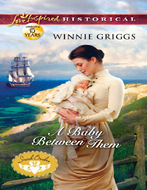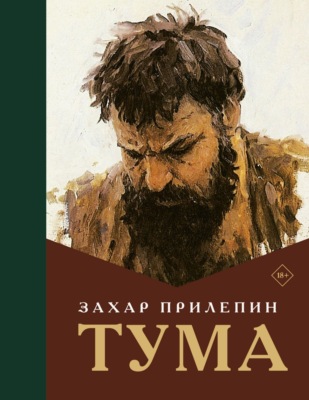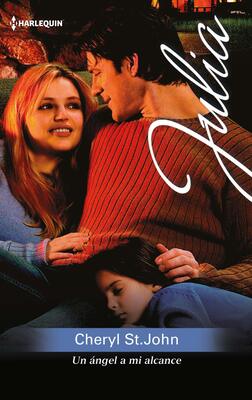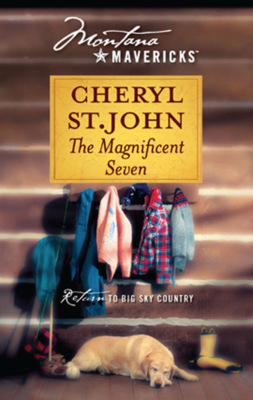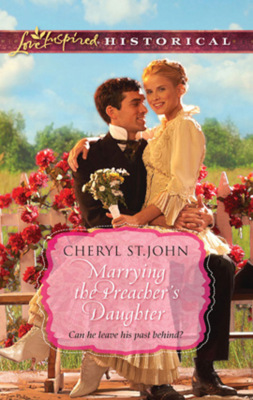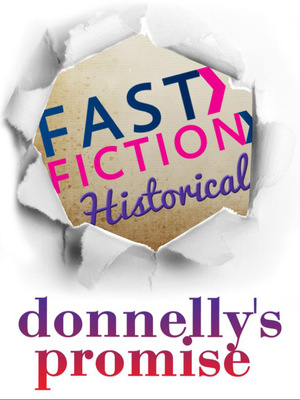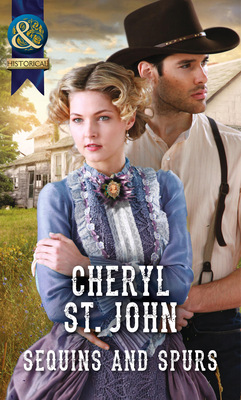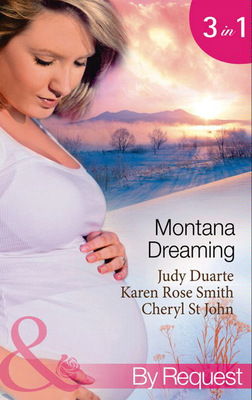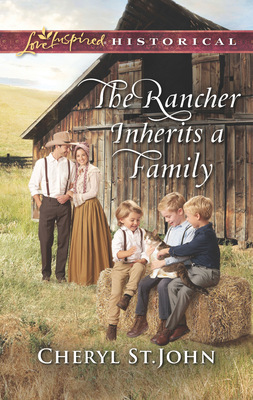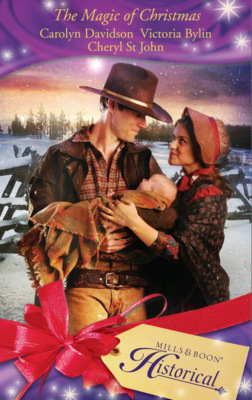Buch lesen: "The Wedding Journey"
Bound for Boston Harbor
The mysterious inheritance is the answer to a prayer. Now Irish lass Maeve Murphy and her sisters can come to America! She’s sure happiness awaits her, even if it won’t—can’t—come from widowed ship doctor Flynn Gallagher. Yes, he made her his assistant, but she’s not foolish enough to fall for the man all the eligible, wealthy female passengers admire.
Flynn Gallagher may have his pick of ladies, but only one cares as he does for the sick and poor. Flynn vowed never to marry another woman who could break his heart. With Maeve, has his heart found safe harbor at last?
CHERYL ST.JOHN
love for reading started as a child. She wrote her own stories, designed covers and stapled them into books. She credits many hours of creating scenarios for her paper dolls and Barbies as the start of her fascination with fictional characters. At one time, Westerns were her preferred reading—until she happened upon LaVyrle Spencer’s Hummingbird in her local store. After that, she couldn’t read enough romance, and the desire to create stories of hope and forgiveness was born.
Cheryl loves hearing from readers. Visit her web-site, http://www.cherylstjohn.net, or email her at SaintJohn@aol.com.
For a selection of collectable mini-bookcover cards, send a SASE to: BOX 390995, Omaha, NE 68139.
The Wedding Journey
Cheryl St. John

MILLS & BOON
Before you start reading, why not sign up?
Thank you for downloading this Mills & Boon book. If you want to hear about exclusive discounts, special offers and competitions, sign up to our email newsletter today!
Or simply visit
Mills & Boon emails are completely free to receive and you can unsubscribe at any time via the link in any email we send you.
God resists the proud, but gives grace to the humble. Therefore humble yourselves under the mighty hand of God, that He may exalt you in due time, casting all your care upon Him, for He cares for you.
—1 Peter 5–7
“My dream is of a place and a time
where America will once again be seen
as the last best hope of earth.”
—Abraham Lincoln
Contents
Chapter One
Chapter Two
Chapter Three
Chapter Four
Chapter Five
Chapter Six
Chapter Seven
Chapter Eight
Chapter Nine
Chapter Ten
Chapter Eleven
Chapter Twelve
Chapter Thirteen
Chapter Fourteen
Chapter Fifteen
Chapter Sixteen
Chapter Seventeen
Chapter Eighteen
Chapter Nineteen
Chapter Twenty
Chapter Twenty-One
Chapter Twenty-Two
Chapter Twenty-Three
Chapter Twenty-Four
Chapter Twenty-Five
Chapter Twenty-Six
Chapter Twenty-Seven
Epilogue
Dear Reader
Questions for Discussion
Chapter One
June 1850, Castleville, Ireland
Lilting over the roar of the ocean, the haunting notes of a flute raised goose bumps on Maeve’s arms. There were no men in the Murphy family to carry the plain wooden box holding the remains of their father on their shoulders, so she and her two older sisters followed behind as the men of the village proceeded from the small stone church up a grassy incline to the cemetery.
The gathering reached the crest. Here the sound of thundering waves far below the cliffs grew to a crescendo, nature’s hymn as familiar as the expansive sky and the salty tang of the ocean.
Beside Maeve, her sister Bridget wept into her handkerchief. She’d worn a somber secondhand brown bonnet, fashionable some ten years ago, yet still serviceable. “What’s going to become of us without Da?”
Maeve comforted Bridget with an arm around her shoulders. “Shush now, ma milis,” she said, calling her sister my sweet in their native Gaelic tongue.
“We’ll come up with a plan.” The eldest of the three, Nora, always had a plan. The sisters were stair steps in height and age, Nora being tall, Bridget in between and Maeve petite.
Most of the simple graves were marked with stones, others with weathered wooden crosses. Goat’s-beard grew in thick patches throughout the grass, the yellow blooms a cheerful contrast to the mood. A hole had been dug in the rich black soil, and Maeve had only to glance about the crowd to note which of the young men’s hair was damp from exertion. She spotted two familiar heads of curly red hair. She would thank the Donnelly brothers later.
Reverend Larkin had prayed over members from every household represented at the graveside today. The famine that had taken its toll on their countrymen had spared no family. Hunger, sickness and poverty were all these people knew, but the believers of Castleville clung to their faith. Now the reverend stretched his hand toward the pine box as six farmers dressed in their Sunday clothing lowered it by ropes down into the earth.
“Jack Murphy, your daughters long for one more day spent at your side. When we lose someone we love, it seems that time stands still. What moves through us is a silence, a quiet sadness, a longing for one more day, one more word, one more touch.”
The ache in Maeve’s chest threatened to cut off her breath. Security had been whipped out from beneath her with the death of her father. The pain of never seeing him again, of never hearing his thick brogue, was almost more than she could bear. She worked to hold back the grief and fear bearing down on her—and to steady Bridget, who swayed on her feet.
Their female friends and neighbors wept softly into their handkerchiefs and shawls. The men stared at the ground and worried the brims of their hats as a red-billed chough flew in a lazy circle overhead.
“We may not understand why you left this earth so soon,” the reverend continued. “Or why you left before we were ready to say goodbye, but little by little we shall begin to remember not just that you died, but all the days that you lived. We will see you again some day, in a heavenly place where there is no hunger or sickness. No rocks in the fields. Now, Lord, bless the daughters of Jack Murphy. Keep them safe from harm and provide for them by Your bounteous grace and mercy.”
Reverend Larkin turned and nodded at Nora. “You first, dear.”
Maeve’s oldest sister seemed taller than her already admirable height while she kept her back straight and stepped forward. She wore her chestnut-brown hair fashioned as she always did, in a practical bun, so not even a single strand of hair caught in the breeze. Kneeling, she picked up a handful of earth and dropped it into the grave. The clods hit the coffin with a dull thump. Bridget followed, her dark wavy hair hidden by her bonnet, with Maeve going last.
She performed the task quickly, without thinking, without gazing upon the pine box, but still she imagined her father laid out in his frayed suit. He wasn’t in that lifeless body, she reminded herself again. He’d gone onto glory and was right this moment looking down from beside her dear mother. They were together now in a place where there were no potatoes to dig or mouths to feed.
Scully and Vaughan Donnelly rolled back their sleeves over beefy forearms and shoveled dirt upon the casket.
Maeve watched for a few minutes until Mrs. Donovan, who’d been a dear friend of her mother’s, pressed a coin into Maeve’s hand and hugged her soundly. “I’ll be prayin’ for ye, I will.”
Maeve swallowed the sob rising in her chest and pressed her fisted hands to her midriff. She accepted condolences and pennies from her neighbors. Her fellow countrymen were poor, so these modest offerings were sacrifices they couldn’t afford. Their gifts humbled her. The fact that so many had come to the funeral at all was enough to touch her heart.
It was a workday, as was every day in County Beary, except the Sabbath, and the landlord didn’t take kindly to a day off.
“I still be missin’ your beautiful mother,” a long-time friend told her and enveloped her in a warm hug. “Colleen and I were dreamers, we were, as girls, but these times steal a woman’s dreams. Don’t let anythin’ or anyone take your dreams, lassie.”
The woman joined her daughter and together they walked through the knee-high grass.
After extending their sympathies one at a time, the rest of the mourners headed back down the green hillside toward their homes and fields.
With the ocean pounding below, the Murphy sisters stood on the lush green crest above the village until they were the only ones remaining.
“Mr. Bantry already has someone waiting to move into the cottage, he does.” Nora spoke of their landlord. “We’d better go pack and clean.”
Maeve set her jaw. “I’ll not be cleanin’ the house that ill-mannered tyrant’s forcing us out of.”
“Our mother kept that cottage clean all the years she lived within its walls, and we’ll not be shaming her by leaving so much as a speck of dust.”
Nora was right, of course. She was always right.
“What’s to become of us, then?” Bridget asked.
“Mrs. Ennis said we could board with them temporarily.” Nora showed them the wrapped bundle she held. “She gave us a loaf of bread.”
“They have seven mouths to feed as it is.” Maeve took off down the hill and her sisters followed. A startled grouse flew out of the tall grass.
“Our neighbors gave me coins.” Bridget extended her hand.
The three of them compared what they’d received. The total was pathetically insufficient and would barely purchase a week’s food. Their cupboards were empty. That morning they’d shared two partridge eggs Maeve had found.
Maeve led the way around a field bordered by a low rock wall. They crossed a stone bridge over a creek and continued toward the only home they’d ever known. The stone cottage greeted them with a lifetime of memories. Their mother had died here ten years previous, during the worst of the influenza epidemic. Their father had repaired the thatched roof numerous times, and the newest foliage showed up distinctly against the old.
Inside, Nora set the bread on the scarred cutting table. Bridget removed her bonnet. The three of them gathered around and studied the golden brown loaf reverently. “The Ennises couldn’t afford to part with this,” Maeve said.
“Our neighbors are a generous lot, they are,” Nora agreed. “The Macrees brought bramble jam earlier. We could each have a slice with it now.”
Bridget shook her head. “We should save it. I’m not very hungry.”
“My stomach is tied in knots, as well,” Maeve agreed. “We’ll want it later. It will last us through tomorrow.”
Nora wrapped the bread in a clean square of toweling. She brushed her hands together. “Very well. We’ll pack.”
“Pack. Where shall we go?” Bridget asked.
Nora placed her hands on her hips. “We must each find a husband immediately.”
“And not marry for love?” Bridget asked with a horrified expression. She placed her hat on a hook by the bed they shared. “We should stay with the Ennises. We’d still be near the village and the young men we know.”
“No proposals have been forthcoming yet,” Nora reminded her. “All the men here are as poor as we are. None can afford to take a wife and work a piece of land on his own. Honora Monaghan married one of the Kenny brothers, and now she has to live with his whole family.”
“Perhaps Mr. Bantry will allow us to work this land ourselves,” Bridget suggested. “We’ve worked it alongside Da all these years. We’re as capable as any man.”
“Mr. Bantry has his own kinsmen waiting to occupy the land,” Nora replied.
Maeve picked up her mother’s Bible and touched the worn cover. “May God turn Bantry’s heart, and if He doesn’t turn his heart, may He turn Bantry’s ankle, so we’ll know him by his limping!”
“Mind your tongue, Maeve Eileen Murphy,” her eldest sister admonished. “And spoken while you’re holding our dear departed mother’s Holy Bible.”
“I learned the saying from her, I did.” Maeve laughed, the first sound of merriment in this house for many weeks. “We’ll simply have to find work,” she told them logically. “And you know as well as I there’s not a job to be had in all of County Beary. We must travel to County Galway.”
“We can use Mother’s trunk.” Nora removed an oil lamp from the top and pulled the trunk into the center of the room that served as their kitchen and living space. “We’ll have to sort out all the things we can’t take.”
They found a few neatly pressed and folded aprons, a piece each of their baby clothing, a bundle of letters and a few daguerreotypes, one in an aged frame.
Nora picked up the likeness of their beautiful mother and caressed the frame with farm-roughened fingers. “What would Mother have done? She was practical above all else.”
“Where did practicality get her?” Bridget asked. “She never had a day’s happiness.”
“Romantic notions won’t put food on the table.” Holding the frame too tightly, Nora’s fingers poked through the fabric backing. She turned over the frame and examined the hole. Peering more closely, she worked three folded pieces of paper from inside. “Whatever are these?”
The younger sisters crowded in close for a better look. The first paper Nora unfolded was a letter, the second some type of legal document and the last a pencil drawing of a house. “How odd.”
“Read the letter,” Bridget coaxed and reached to take the drawing.
“‘May 1824,’” Nora began. “‘My dearest Colleen, I know you have made your choice. My heart is broken, but I understand your decision. I’ve gone to America, to Faith Glen, the village in Massachusetts we spoke of so often. The town was founded by an Irishman. It is just ten miles from Boston, yet I have heard it is so much like Castleville, though, of course it is another world. I have purchased a small home for you—’”
“Who’s the letter from?” Maeve stepped in closer to have a better look at the handwriting.
Nora waved her away. “Let me finish. ‘I have purchased a small home for you on the water’s edge. Should you or your kin ever be in need of a place to go, know this house is yours. With undying love, Laird.’”
The three sisters stood in stunned silence for a full minute.
“I told you she whispered the name Laird with her last dyin’ breath.” Bridget looked up from the letter to Nora’s tense expression. “But the two of you insisted she was just trying to say love.”
“We didn’t know any Laird,” Maeve said.
“Until now.” Bridget gave a satisfied nod.
“What’s this mention of undying love?” Maeve asked.
“Dated a year before I was born, ’tis.” Nora turned her attention to the pencil drawing Bridget held, and the three of them studied the depiction of a home near the ocean. The artist had even drawn flowers blooming in gardens on two sides.
“Mother was in love with this man!” Bridget’s expression showed her shock. “He bought her a house in America, but she stayed and married Da? I can’t conceive of it.”
“There must be a logical explanation,” Nora said.
Bridget’s hazel eyes were bright with excitement. “The cottage sounds ideal. We should go there.”
“They say there’s so much land in America that anyone can own a share.” Maeve took the deed from Nora’s fingers and examined it. “The soil is rich and there’s plenty of rain. There are schools and jobs. Western men are hungry for wives.”
“That may be so, but it takes more than we have to purchase ship’s fare and travel there. Fanny Clellan sold both her cow and her mother’s brooch to buy a ticket. We don’t even have a cow.” Nora snatched the paper back. She pointed to the date. “This deed is over twenty-five years old, ’tis. The house is most likely occupied—or it could have been destroyed.”
Maeve went to the coffee tin and dumped out the contents on the kitchen table. Bridget added the coins they’d received that morning, and the two of them tallied the amount.
“This could get us to Galway,” Nora pointed out.
“But we’d have no food or lodging,” Maeve argued. “We have something we can sell to buy tickets to America.”
“Don’t even speak of it.” Nora gave Maeve a cautionary glare.
Maeve went back to the trunk. “Once we land we could find an inn and secure jobs. We can look for this house in Faith Glen and learn if it’s still there. Think of it! We might have a comfortable place to live just waitin’ for us.” She knelt and took out several objects that had been packed in fabric at the bottom.
Bridget unwrapped one and held up a silver sugar bowl, followed by the teapot. “I never saw Mama use these.”
“I never did, either.” Maeve unwrapped a creamer. “They’ve always been in the trunk.”
“They’ve been there as long as I can remember,” Nora said. “Da once told me Mama got them from a woman she worked for. He said she had saved them for a rainy day. Even when times were the worst, she held on to them.”
“This is the rainiest day I can think of,” Bridget commented.
Maeve gave her eldest sister a pleading look. “It would be a fresh start, Nora. We have nothing left here.”
Nora looked about the barren room, her concern clear, but her resolve crumbling. “Even selling that, the tickets would take every last penny.”
“Perhaps there are positions aboard one of the sailing vessels. None of us minds a good day’s work.” Excitement laced Bridget’s tone.
Nora refolded the papers and carefully tucked them inside the Bible. “I suppose it can’t hurt to go see how much the tickets actually cost and learn if it’s even possible for us to hire on.”
Bridget shot a delighted bright-eyed gaze to Maeve. A broad smile lit her sweet face. Reaching for Maeve’s hands, she squeezed them until Maeve winced. “We’re going to America! Can you conceive of it?”
“Only if we can afford to buy fare,” Nora reminded.
Maeve tried to hide the jitters weakening her knees. If they didn’t have enough, they’d have to find a way by the end of the week. They couldn’t remain here. Butterflies fluttered in her stomach. What did three simple village girls know about traveling aboard a sailing ship? What if the deed truly was worthless and there was no place for them once they arrived?
The sense of hopelessness she’d lived with for months had lifted, however. They were taking action to change their situation. Even if the house was gone, anything was better than this. God had already seen them through difficult times. All they had to do now was trust Him.
“Into Your care we place ourselves, Lord,” she prayed aloud. “Show us the path You would have us take and bless us as we seek a new home and a new start. Thank You for hope.”
Chapter Two
Two weeks later, Minot’s Ledge, Port of Galway, Ireland
“Move aside!” A barrel-chested man carrying an enormous crate on his shoulder jostled passengers awaiting their turns to board the Annie McGee. Overhead, gulls with black-tipped wings cawed and swooped.
Maeve and her sisters backed out of the way. All of their earthly possessions had been whittled down to the trunk, which had been stored aboard earlier, a few crates, a donated bandbox and a battered satchel. The pungent smells of fish and brine burned Maeve’s nose.
The rude man set down his burden at the foot of the gangplank and headed back to a wooden cart, which interrupted the line of waiting passengers. The harnessed mule jumped nervously at the man’s approach, and the fellow picked up a switch and waved it in a threat.
The mule sidestepped, rocking the cart precariously.
“Stand still, you good for nothin’ bag o’ bones!” His accent plainly emphasized a lack of Irish heritage.
With a loud bray, the frightened animal kicked out with his hind feet, solidly connecting with the cart and tipping the entire thing backward.
Crates toppled onto the ground as a piercing cry rose.
“There’s a lad beneath the cart!” someone called.
High-pitched screams raised the hair on Maeve’s neck.
The burly man grumbled and, together with several bystanders, righted the cart back onto its wheels.
“Aren’t you the doctor’s assistant?” a gentleman in a black suit asked the grumbling bear of a man. His face showed noticeable concern. “The lad here’s bleeding.”
“Filthy urchin shouldn’t have been beggin’ on the wharf,” the big man snarled. He picked up one of the spilled crates and headed for the gangplank without a backward glance.
Maeve didn’t hesitate to set the satchel she held at Nora’s feet and rush to the fallen boy’s side. She’d seen more than her share of sickness and injuries over the past few years, and the lack of a proper village doctor had given her plenty of opportunities to pick up numerous nursing skills. She didn’t know if she could help, but she’d do whatever she could.
The scene was alarming. Blood flowed from the boy’s thigh at a steady rate. Thinking quickly, she untied the scarf from around her shoulders, twisted it into a rope and tied it about his leg.
“I have need of a stick,” she called.
“Will this do?” A nearby woman shoved an ivory comb into her hand.
Maeve tied the tails of the scarf around the comb and twisted until the makeshift tourniquet cinched tight and the flow of blood ceased. Certain the bleeding was stopped, she lifted her gaze to the frightened boy’s dirty face. Tears streaked the grime on his pale cheeks, and wide frightened brown eyes appealed to her.
“You’re going to be all right,” she assured him. She glanced into the crowd. “Has someone sent for the doctor?”
“Yes, miss,” a female bystander replied. “My husband alerted the sailors on the gangplank. One of ’em rushed aboard.”
“It won’t be long now,” Maeve assured the boy. “What’s your name, laddie?”
“Sean,” he replied, his lower lip trembling. “Sean McCorkle.”
“Is your family nearby?” she asked.
“Aye. Me two brothers. Emmett be right over there.”
Maeve glanced about and spotted the younger boy he’d indicated standing several feet away, wearing a terrified expression. Both of them appeared dirty and uncared for.
“’Tis the doctor comin’ now,” the woman called to Maeve.
Stepping around passengers, a tall man hurried forward. His chocolate-brown gaze analyzed the scene, taking in the patient, the improvised tourniquet and lastly Maeve. He leaned over the lad, looking into each eye, and then pressing long fingers to the boy’s sockless ankle above his battered shoe. The doctor’s black hair glistened in the morning sun as he bent to examine the wound.
The scent of sandalwood clung to his clothing and drifted to Maeve’s nostrils. His efficiency impressed her.
He raised his head, piercing Maeve with an unsmiling, yet admiring look. “That was mighty quick thinking, miss.”
“I did what I could.”
He knelt and effortlessly picked up the boy. Maeve stood as he did, keeping her grip on the twisted scarf and comb secure. “I’ll take him to the dispensary, where I can treat him.”
“His name is Sean McCorkle. Says he has brothers, but he didn’t mention parents.”
“It will be helpful if you hold the tourniquet in place while I carry him aboard.” He called to one of the sailors. “Find this lad’s family! McCorkle’s the name.”
As dirty as he was, Maeve couldn’t imagine his family or home. “Where’s your mother, Sean?”
“She be with Jesus, miss. Don’t have a da, neither.”
She exchanged a significant look with the doctor.
His contemptible assistant chose that moment to return for another armload. The doctor stabbed him with an angry dark gaze. “What happened here, Hegarty?”
“Filthy beggar got in the way. Shouldn’t be underfoot, that one.”
A man with coal-black hair sticking out from beneath his cap stepped forward. “Takin’ a switch to the mule, Hegarty was,” the man supplied. “Frightened the poor beast into tippin’ goods all about the wharf and spilt the cart right atop the laddie here.”
“Cruelty to animals and children isn’t acceptable behavior under my employ,” the doctor proclaimed, already walking away with the boy. “Pack your belongings and leave the ship immediately. You no longer have a job.”
Hegarty dropped the crate with a resounding crash and brushed his beefy hands together. “You can keep your measly wages. Too many smelly Irishmen aboard this vessel for my taste, anyhow.”
The doctor directed an undiscernable look at Maeve. It was apparent from his speech, he was every bit as Irish as she, though obviously from a higher social class and far more educated. In those brief seconds it didn’t matter. The obnoxious man had insulted the majority of people on the wharf.
“Are you boarding the Annie McGee?” At her nod, the doctor asked, “Can someone see to carrying your belongings?”
“Aye, my sisters.”
“Call to them, if you will, please. All of you can come aboard with me.”
Quickly, she turned and called out before the crowd had time to close in behind them. “Nora! Bridget! Bring everything and follow us!” She addressed the doctor again. “You’re taking him aboard the sailing vessel?”
“Can’t very well leave him here unattended, can I? We’ve no other choice.”
“He said he was with two brothers, but I saw only one, I did. A lad younger than this boy.”
“The crewman will search them out,” he replied. “I suspect if there are brothers, they’ve either sneaked on the ship already or will board as soon as they have the opportunity.”
Maeve left her last footprint on the soil of her native land and stepped onto the wooden gangplank.
Reaching the deck, she kept pace with the long-legged doctor, and they made their way to the companion ladder. He descended ahead of her, and she leaned as far forward as she dared without toppling over to keep hold of the tourniquet.
Once below deck, he led the way along a corridor until they reached a closed door. She had a free hand, so she opened it and stood back. The doctor was so tall, he had to bend to enter the room, but Maeve walked through upright. Her sisters followed, with Nora bending to fit under the doorway.
“Set your belongings inside the door,” he instructed. “I apologize for my lack of manners, ladies. I’m Dr. Flynn Gallagher.”
“Oh, goodness, no,” Nora objected. “You were involved with an emergency situation and could hardly have been expected to tip your hat.”
“He isn’t wearing a hat,” Bridget said with a grin.
Nora ignored her. “I’m Nora Murphy. This is Bridget, and your capable helper there is Maeve.”
He had already laid down the boy and was now washing his own hands in a basin. Beside it was a stack of folded towels and linens. The dispensary was impeccably clean.
“Will you assist me?” he asked Maeve.
Clearly he had no one else to help now. She couldn’t have imagined that Hegarty fellow would have been of much use anyway. The doctor took hold of the comb while she washed her hands as thoroughly as he had.
Dr. Gallagher’s brows rose in obvious appreciation for the care she took. On her return, he handed her a small brown bottle and a cloth folded into a square.
“What will happen if his brothers aren’t found?” she asked. She didn’t want to see this lad separated from his family.
“Where do you suppose your brothers are right now?” Dr. Gallagher asked Sean.
Sean didn’t meet his eyes. He was sweating from the pain.
“They’re stowing aboard, aren’t they? Was that what the three of you cooked up?”
“What would happen to them if they did?” he asked.
The doctor nodded at Maeve. “We’ll see them eventually. Go ahead.”
She uncapped the bottle, held it well away from her nose and caught a whiff to test its contents. Knowing full well what it was and what he intended it for, she poured a small amount on the cloth, capped the bottle and held the fabric over the child’s nose. “Close your eyes now, laddie. The doctor’s going to fix you up as good as new, he is.”
Dr. Gallagher cut away Sean’s trousers, covered him with toweling and doused the area with alcohol. The boy’s eyes were peacefully closed as he proceeded.
“I’ll need a good helper for this voyage. I’d like to hire you for the position of my assistant.”
“But…” Caught off guard, she looked up. His diligent attention was fastened on his task. “I have no formal training.”
“Experience and quick thinking are often worth more than book learning, Miss Murphy. You’ve already proven yourself more than competent.”
Maeve thought of all their neighbors and her own parents whom she’d treated and seen worsen and eventually die. Two weeks ago she hadn’t been able to save her own da. She didn’t know if she had the courage to take care of any more sick people. “I don’t know.”
The handsome doctor glanced toward Nora and Bridget as he took instruments from a small metal box and threaded a needle. “How shall I convince your sister to become my assistant?”
“May I step closer to speak with her?” Nora asked.
“Have you a weak stomach?”
“I’ll be averting my eyes, if that’s what you ask.”
He gestured for her to come forward. “Yes, come speak to her.”
Nora shot Bridget a glance and hurried to Maeve’s side, deliberately keeping her eyes averted from the surgery.
“This is a divine opportunity,” she whispered in Maeve’s ear. “Think on it. We spent nearly every last penny on tickets and have nothing left for emergencies or even lodging when we get to Boston, should our plans fall through. We tried in vain to seek positions before the ship sailed. And now this perfect opportunity is presented to you and you want to refuse it?”
Die kostenlose Leseprobe ist beendet.


